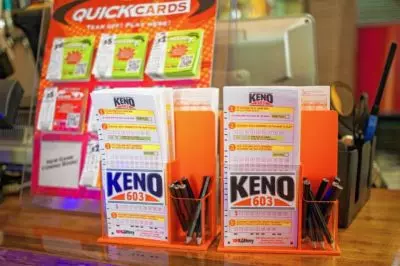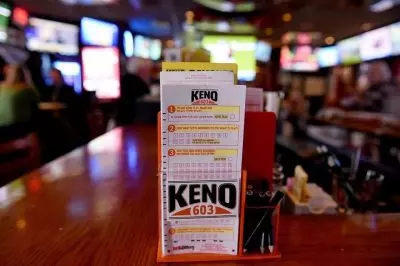 A couple of days ago, the Monadnock Region in New Hampshire saw further expansion of the Keno gambling market, after two of the three local communities which have been considering its addition gave Keno operations the green light.
A couple of days ago, the Monadnock Region in New Hampshire saw further expansion of the Keno gambling market, after two of the three local communities which have been considering its addition gave Keno operations the green light.
It was Fitzwilliam and Swanzey that decided to add Keno to their gambling markets, while the voters in Rindge stopped the expansion for a second time, after voting 608 to 439 for keeping the lucky-number generating game out of the community’s boundaries.
In fact, this was a comeback for Keno addition in Fitzwilliam, after the issue failed on the 2018 ballot, as voters rejected it with a minor advantage of 307 to 295. This year, the voters approved the game with a 61-vote advantage. Swanzey voters also gave the nod to the game, with a large advantage of 555 to 400 votes.
An approved and legally offered game of Keno in Swanzey is seen as a reasonable revenue source for the community. In addition, the proceeds would reportedly be used to fund a full-day kindergarten. Some residents, however, believe that it would be better if the keno revenue proceeds are spread across the state of New Hampshire.
Several Communities in New Hampshire Have Already Legalized Keno
 In 2018, the addition of Keno game was rejected by Rindge, Fitzwilliam and Keene. At the time, four other communities, including Troy, Jaffrey, Winchester and Hinsdale, already had at least one establishment where the game was offered. Charlestown also gave the green light to the lucky-number generating game in 2018, but there are still no venues in town which offer it.
In 2018, the addition of Keno game was rejected by Rindge, Fitzwilliam and Keene. At the time, four other communities, including Troy, Jaffrey, Winchester and Hinsdale, already had at least one establishment where the game was offered. Charlestown also gave the green light to the lucky-number generating game in 2018, but there are still no venues in town which offer it.
Keno was also legalized in other communities, including East Kingston, Allenstown and Litchfield.
As of February 2019, only six of the about 160 keno vendors in the state of New Hampshire were held by the Monadnock Region. These providers accounted for net profits of $4.24 million for the state in the period from December 2017 to the beginning of February 2019.
The initial estimates for the cost of full-day kindergarten for the current fiscal year amounted to $10,728,603.71. Under the bill which legalized Keno in New Hampshire, SB191, the state must pay should revenue generated from the game fails to reach the minimum $1,100 of additional funding per student.
For the time being, around 70% of the sales generated by the Keno game in the state are returned to the players as prizes. The establishments offering the game get 8% of the revenue, while the New Hampshire Lottery receives 2% of the revenue. The local Department of Health and Human Services receives 1% of the Keno-generated revenue as funding that is supposed to be used to address problem gambling and gambling-related harm which affects the state’s residents.